About
The California Native American Studies Model Curriculum (NASMC) is a statewide initiative designed to support K–12 educators in teaching accurate and respectful content about Native American peoples created in partnership with Native American peoples. Funded by the California Department of Education, this free, web-based curriculum provides vetted lesson plans, primary sources, teaching strategies, and professional learning resources that center the voices, histories, and perspectives of California Native American communities.
Meet the Guiding Leaders
Guiding Leadership in the Development of NASMC:
The Native American Studies Model Curriculum (NASMC) has been guided by the leadership of three respected California Native scholars whose expertise in Native American Studies (NAS) has been foundational to every stage of the project:
Nicole Myers-Lim, J.D. (Pomo) – Executive Director, California Indian Museum and Cultural Center
Dr. Cutcha Risling Baldy (Hupa, Yurok, Karuk) – Department Chair of Native American Studies, Cal Poly Humboldt
Dr. Joely Proudfit (Luiseño/Payómkawichum and Tongva) – Department Chair of American Indian Studies; Professor of American Indian Studies; Director of California Indian Culture & Sovereignty Center, California State University, San Marcos
Referred to as “Guiding Leaders” of the NASMC, their collective knowledge and leadership ensured that curriculum writers produced accurate, culturally grounded lessons; collaborated responsibly with Tribal Nations; and utilized the most appropriate and vetted resources available. They provided critical guidance on overarching themes, curricular cohesion, and professional learning, helping the NASMC remain rooted in both academic discipline and community connection.
Using their access to higher education communities, the Guiding Leaders led engagements with faculty from NAS programs at colleges and universities, teachers and education leaders with relevant experience, and Tribal cultural experts across the state.
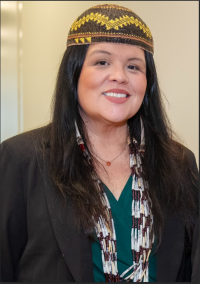
Cutcha Risling Baldy, Ph.D. (Hupa, Yurok, Karuk; Enrolled: Hoopa Valley Tribe) is an Associate Professor of Native American Studies at Cal Poly Humboldt and an award-winning scholar, writer, and community leader. Her work centers on Indigenous feminisms, environmental justice, cultural revitalization, and decolonial education. She is the author of We Are Dancing for You: Native Feminisms and the Revitalization of Women’s Coming-of-Age Ceremonies (University of Washington Press, 2018), which received the Best First Book Prize from the Native American and Indigenous Studies Association.
Dr. Risling Baldy co-directs the Rou Dalagurr Food Sovereignty Lab & Traditional Ecological Knowledges Institute, which was honored with a 2025 James Irvine Foundation Leadership Award. Her scholarship and public-facing work advance Indigenous science, gender justice, and land-based healing. She also serves as Co-Director of the Huwighurruk Tribal Health Post Baccalaureate Program and leads curriculum development for California’s Native American Studies Model Curriculum.
A highly sought-after speaker and thought leader, Dr. Risling Baldy has secured over $1.5 million in funding for community-centered research and programming. Her articles appear in Decolonization, Cultural Studies ↔ Critical Methodologies, Native American Rhetoric, and many other scholarly and public forums. She holds a Ph.D. in Native American Studies with a Designated Emphasis in Feminist Theory from UC Davis, an M.F.A. in Creative Writing from San Diego State University, and a B.A. in Psychology from Stanford University.
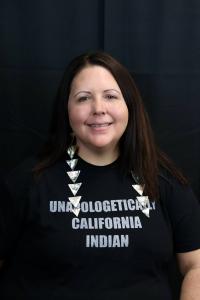
Nicole Lim has earned advanced degrees from the University of California at Berkeley and University of San Francisco School of Law. She is Pomo/Miwok and has worked for the National Indian Justice Center and the California Indian Museum and Cultural Center (CIMCC) since 1996. As Executive Director of the CIMCC, she works to develop exhibits, educational programs and curricular resources that represent Native American perspectives. She founded the Tribal Youth Ambassadors program in 2010 the program received the National Arts and Humanities Youth Program Award from the President’s Committee on Arts and Humanities in 2016. She co-edited, On Indian Ground: California, the first in a series of books that focus on best practices for K-12 educators of Native students. California Governor Edmund Brown appointed her to the Board of Directors, 4th District Agricultural Association, Sonoma-Marin Fair, where she served from 2013-2017. Nicole served as the Vice President of the California Association of Museums (CAM) and formerly co-chaired CAM’s Government Relations committee. She served as a member of the Native American Advisory Committee to the University of California Office of the President and on T-Mobile's External Diversity and Inclusion Sub Council for California. She is currently the Chairperson of the American Indian Education Oversight Committee to the California State Superintendent of Public Instruction, the secretary of Tribal GIS and a Board Member of the Community Foundation of Sonoma County.
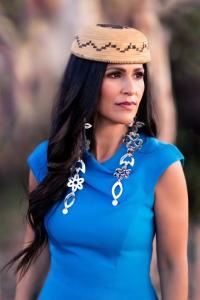
Dr. Joely Proudfit (Luiseño/Payómkawichum and Tongva) is a scholar, advocate, and storyteller whose career bridges education, policy, and media. She is Professor and Chair of American Indian Studies at California State University San Marcos, founding Director of the California Indian Culture & Sovereignty Center, and co-founder of California Indian Education for All. A professor for more than three decades, she has been tenured three times within the CSU system and is nationally recognized for advancing Native-centered scholarship and curriculum. With a particular focus on decolonizing California’s curriculum, Dr. Proudfit co-edits the On Indian Ground: A Return to Indigenous Knowledge—Generating Hope, Leadership and Sovereignty through Education book series, authored the forthcoming Beyond the American Indian Stereotype, and has produced landmark statewide reports on American Indian and Alaska Native education. She has also shaped educational policy at the highest levels, appointed by President Barack Obama to the National Advisory Council on Indian Education and by Governor Gavin Newsom as the first Indigenous woman to serve on the California Commission on the Status of Women and Girls. In addition, she has significantly influenced Native representation in film, television, and children’s programming, advancing “edutainment” that combines cultural integrity with creative storytelling.
Her contributions have been recognized with some of the field’s highest honors, including the 2024 National Indian Education Association Educator of the Year, the John F. Kennedy Jr. Award for Outstanding Public Service, and Variety’s 2022 Entertainment Educator of the Year. Her enduring advocacy for educational equity and her commitment to ensuring authentic California Indian voices and histories within state curriculum have established her as a leading voice in Native education and representation. Through her vision and dedication, Dr. Proudfit continues to inspire meaningful change in scholarship, policy, and public discourse.
Meet the SDCOE Team
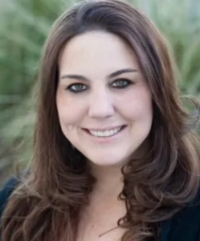
Dr. Staci Block, Ed.D. (Cherokee) has an extensive 27-year career in education, holding various roles such as county office of education administrator, school principal, adjunct professor, curriculum and instruction director, and classroom teacher. She is a passionate advocate for improving educational outcomes for underserved student populations, particularly American Indian/Alaska Native (AI/AN) students and families. Dr. Block’s expertise lies in authoring Native American Studies curriculum, designing equity-focused professional learning that embraces culturally and linguistically responsive instruction, and leading statewide digital equity innovation projects. She has been instrumental in managing numerous grants and has experience in state and federal grant management. As an educational leader and tribal representative, Dr. Block serves on the California Indian Education for All Board of Directors and the American Indian Education Oversight Committee for the California Department of Education. Her efforts promote AI/AN college and career readiness and equitable policies and practices. In her current role, Staci coordinates efforts to bridge the opportunity gap for underserved populations throughout San Diego County. She is renowned for her expertise in Indigenous education curriculum design, Native Ways of Knowing, culturally responsive teaching, tribal educational sovereignty, and human-centered program design for English Learner/Dual Language programs.
Dr. Block’s impact extends to the development of online resources and courses, ensuring equity in distance learning. She is a leader in disruptive and equitable learning practices, employing Liberatory Design and Project G.LA.D. to create transformational change for AI/AN families and students.Currently, Staci serves as the Project Director for the California Department of Education Native American Studies Model Curriculum grant and the U.S. Department of Education Office of Indian Education Native Scholars Pathways grant. She also serves as a lead facilitator for the Cherokee Nation’s Native American Teacher Retention project to support culturally responsive Cherokee K-12 curriculum and educator Native Ways of Knowing professional learning. Most recently she has authored a framework for Enhancing Tribal Educational Sovereignty and Ensuring American Indian Belongingness. Her dedication to equity is evident in her work through authored websites, Native literacy curriculum and professional learning, Tribal community-responsive programming, Native Ways of Knowing Book Clubs and micro-courses, indigenized curriculum materials, articles, resources, and webinars.
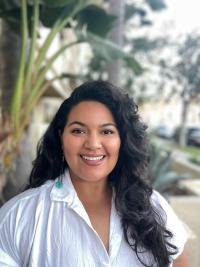
Taylor Dawn Melgoza (Kewa Pueblo) is an educator and scholar dedicated to advancing Native American representation and centering Tribal sovereignty in education. She is currently pursuing a Doctor of Education in Educational Leadership at the University of California, San Diego, where her dissertation will explore Indigenous Data Sovereignty in education. She earned her M.A. in Education from California State University, Long Beach, where her thesis examined how American Indian students use resiliency and Indigenous knowledge to navigate higher education.
Taylor serves as a Project Specialist for Native American Studies and the Native Scholars Pathway at the San Diego County Office of Education. In addition, she is a guest lecturer in American Indian Studies at California State University, Long Beach and has held roles in higher education admissions, curriculum development, and student advocacy.
An active community member, Taylor has presented at national conferences, facilitated leadership cohorts, and served on taskforces and advisory boards supporting Indigenous students and educational equity.
Taylor is honored to build on her family’s legacy of advocating for increased American Indian representation and support within education.
SDCOE NASMC Supporting Staff
Gloria Ciriza, Ed.D., San Diego County Superintendent of Schools
Paul Gothold, Ed.D, (Lac Courte Oreilles) former San Diego County Superintendent of Schools
Dr. Olympia Kyriakidis, Executive Director of Equity/Multilingual Education and Global Achievement
Shannon Baker, Executive Director of Curriculum and Instruction
Matt Hayes, History-social Science Coordinator
Dr. Julie Goldman, Director of Equity Curriculum and Instruction
Jonathan Hunt, Coordinator, Library Media Services
Jorge Cuevas Antillon, District Advisor for Curriculum/Instruction/Assessment, Multilingual Education and Global Achievement
Katharine Bowman, Administrative Assistant, Learning and Leadership Services
Meet the SDCOE Writers
San Diego County Office of Education (SDCOE) hosted several virtual and in-person NASMC Community Engagement Listening Circles in Southern California and Northern California respectively. Perspectives and voices of California tribal community members, Native American youth, educators and cultural bearers which lead the development of NASMC.
NASMC Curriculum Collaborating Researchers and Writers
Raquelle “Kelly” Lynne Myers (Pomo)
Jayden Lim (Pomo)
Brennan Brown (Chamorro)
Ramiro Hampson-Medina (Winnebago, White Earth Chippewa)
Dr. Eric Tippeconnic (Comanche)
Dr. Dina Gilio-Whitaker (Colville Confederated Tribes)
Aerin Scalco (Barona Band of Mission Indians)
Rhonda Welch-Scalco (Barona Band of Mission Indians)
Rachael Barger (Eastern Band Cherokee)
Elia Mahoney
Cassiopeia Guthrie
Denise Davis
Cristapher Torres
Scott Bankert
Gregory Hinchliff
Tanya Cuero
Benoni Pantoja
Nabila Kalu
Vincent Medina (Muwekma Ohlone)
Louis Trevino (Rumsen Ohlone)
William Bauer, Ph.D. (Round Valley Reservation)
Debbie Reese, Ph.D. (Nambe Pueblo)
Stanley Rodriguez, Ed.D. (Kumeyaay Santa Ysabel Band of the Iipay Nation)
John Tippeconnic (Comanche, Cherokee) CSU San Marcos, University Professor/Author, Previous U.S. Dept of Ed. OIE Director
Elena Hood, Palomar College (Absentee Shawnee/Choctaw/ Luiseno)
Dr. Kouslaa Kessler-Mata, Ed.D. (Chumash/Yokut)
NASMC Partnership Support Staff
Missy Magooshboy (Navajo)
Paula Myers
Dixie Myers
Kristall Vega (Pomo)
Viviana Vega (Pomo)
Gina Elkins (Pomo)
Jayden Lim (Pomo)
Ramiro Hampson- Medina (Winnebago, White Earth Chippewah)
Christy Garcia
Carol Oliva
Isabel Valenzuela
Meet the SDCOE Tribal Partners
Tribal Education Directors and Staff
SDCOE would like to acknowledge and graciously thank the following Tribal educator directors and staff for ongoing support and communication with Tribal communities and leaders; offering NASMC Tribal curriculum research and resources, reviewing Essential Understandings for California Indian History and Culture; and prioritizing the K-12 curriculum topics.
- Alexa Adkins, Manzanita Band of Kumeyaay Nation Education Director
- Benoni Pantoja, Sycuan Band of the Kumeyaay Nation Education Department Director
- Bobby Sue Althaus, Iipay Nation of Santa Ysabel Education Director
- Brenda Garcia, Viejas Band of Kumeyaay Indians Education Director
- Carmen Longoria, Julian Pathways Executive Director
- Crystal Lara, Southern California Tribal Chairpersons Association Education Director
- Debbie Cuero, Campo Kumeyaay Nation Education Director
- Doretta Musick, Pala Band of Mission Indians Education Director
- Felycia Brawner, Viejas Band of Kumeyaay Indians Education Department Staff
- Inez Sanchez, La Jolla Band of Luiseño Indians Education Director
- Julie Dome, La Posta Band of Mission Indians Education Director
- Lorraine Orosco, San Pasqual Band of Mission Indians Education Director and Kumeyaay Community College Faculty
- Shana Bojorquez, Pauma Band of Mission Indians Education Director
- Tanya Cuero, Campo Kumeyaay Nation Education Staff
Tribal Leaders
- Angela Elliott Santos, Manzanita Band of the Kumeyaay Nation, Acting Chairwoman
- Audrey Martinez, Yuhaaviatam of San Manuel Nation, Secretary
- Charles Martin, Morongo Band of Mission Indians, Chairman
- Cody Martinez, Sycuan Band of the Kumeyaay Nation, Chairman
- Curtis LaChusa, Mesa Grande Band of Mission Indians, Chairman
- Edward Duro, Yuhaaviatam of San Manuel Nation, First Governing Council Member
- Eric LaChappa, La Posta Band of Mission Indians, Chairperson
- Erica Pinto, Jamul Indian Village A Kumeyaay Nation, Chairwoman
- Erica Schenk, Cahuilla Band of Mission Indians, Chairwoman
- Erica Schenk, Cahuilla Band of Mission Indians, Chairwoman
- Glenn H. Lodge, Chemehuevi Indian Tribe, Chairman
- Isaiah Vivanco, Soboba Band of Luiseño Indian, Chairman
- Jaime LaBrake, Sycuan Band of the Kumeyaay Nation, Tribal Council Member
- Joe Maarango, Yuhaaviatam of San Manuel Nation, Culture Seat
- John Christman, Viejas Band of Kumeyaay Indians, Chairman
- Johnny Hernandez, Yuhaaviatam of San Manuel Nation, Jr., Vice Chairman
- Joseph Mirelez, Torres Martinez Desert Cahuilla Indians, Chairman
- Kevin Osuna, Iipay Nation of Santa Ysabel, Chairman
- Latisha Prieto, Yuhaaviatam of San Manuel Nation, Treasurer
- Laurena Bolden, Yuhaaviatam of San Manuel Nation, Second Governing Council Member
- Laurie Gonzalez, Rincon Band of Luiseño Indians, Tribal Council Member
- Lynn Valbuena, Yuhaaviatam of San Manuel Nation, Chairwoman
- Marcus Cuero, Campo Band of Kumeyaay Indians, Chairman
- Ray Chapparosa, Los Coyotes Band of Cahuilla and Cupeño Indians, Chairman
- Raymond Welch , Barona Band of Mission Indians, Chairman
- Rebecca M. Osuna, Inaja-Cosmit Band of Indians, Chairwoman
- Reid D. Milanovich, Agua Caliente Band of Cahuilla Indians, Chairman
- Robert Pinto Sr., Ewiiaapaayp Band of Kumeyaay Indians, Chairman
- Robert Smith, Pala Band of Mission Indians, Chairman
- Stephen W. Cope, San Pasqual Band of Mission Indians, Chairman
- Stephen W. Cope, San Pasquel Band of Mission Indians, Chairman
- Steve Stallings, Rincon Band of Luiseño Indians, Chairman
- Steven Estrada, Santa Rosa Band of Cahuilla Indians, Tribal Chair
- Temet Majel, Pauma Band of Luiseño Indians, Chairman
- Vanessa Christman, Iipay Nation of Santa Ysabel, Tribal Council Member
- Wendy Schlater, La Jolla Band of Luiseno Indians, Chairwoman
- Wesley G. Ruise Jr., La Jolla Band of Luiseño Indians, Chairman
Tribal Partnerships, Universities, and Community Organizations
- California Indian Culture and Sovereignty Center
- California Indian Education for All
- California Indian Museum and Cultural Center
- California State University, San Marcos, American Indian Studies Department
- California Tribal Chairpersons’ Association
- Kumeyaay Community College
- Miracosta Community College
- UC Berkeley Joseph M. Myers Center for Research on Native American Issues
- UC Berkeley, Lawrence Hall of Science
- Steven Van Zandt's Rock and Roll Forever Foundation, TeachRock
- Southern California Tribal Chairmen’s Association
- Tribal Print Source
California Tribal Chairpersons Association (CTCA) consisting of:
- Southern California Tribal Chairpersons Association (SCTCA) representing 20 tribes in Southern California region
- Central California Tribal Chairpersons Association representing the collective interests of 56 tribes within the Central California region
- Northern California Tribal Chairmen's Association representing the collective interests of 14 tribal nations in the Northern California region.
Southern California Tribal Chairmen’s Association (SCTCA)
- Agua Caliente Band of Cahuilla Indians
- Barona Band of Mission Indians
- Cahuilla Band of Mission Indians
- Campo Band of Kumeyaay Indians
- Chemehuevi Indian Tribe
- Ewiiaapaayp Band of Kumeyaay Indians
- Iipay Nation of Santa Ysabel
- Inaja-Cosmit Band of Indians
- Jamul Indian Village A Kumeyaay Nation
- La Jolla Band of Luiseño Indians
- La Posta Band of Mission Indians
- Los Coyotes Band of Cahuilla and Cupeño Indians
- Manzanita Band of the Kumeyaay Nation
- Mesa Grande Band of Mission Indians
- Pala Band of Mission Indians
- Pauma Band of Luiseño Indians
- Rincon Band of Luiseño Indians
- San Manuel Band of Mission Indians
- San Pasqual Band of Mission Indians
- Santa Rosa Band of Cahuilla Indians
- Soboba Band of Luiseño Indians
- Sycuan Band of the Kumeyaay Nation
- Torres Martinez Desert Cahuilla Indians
- Viejas Band of Kumeyaay Indians
Meet the SDCOE Community Partners
Special Thank You to CA Legislative Leaders
James Ramos (Serrano/Cahuilla)
Monique Limón
LEA Native Education Leaders
Amy Conforth, Mountain Empire USD Title VI Director
Connie Greybull , San Diego USD Title VI Director
Stephanie Martinez (Rincon Band of Luiseño Indians), Valley Center-Pauma USD Title VI TOSA
NASMC Curriculum Curriculum Reviewers
2025 California Indian Educational Leadership Cohort
Amy Booth
Christina Alaniz
Cyndie Summers
Delia Vazquez
Mindy Maldonado
Nabila Kalu
Riza Eusebio
Adabel Bonanno
Amie Mahavanh
Caroline Sanchez-Carcamo
Julie Dome
Adina Alvarez
Alina Gonzalez
Alison Amberg
Althea Jones
Beverly Jimenez
Brenda Garcia
Casey Reck
Chermaine Osuna
Cristapher Torres
Dawn Corliss- Ingoglia
Emy Gregor
Gabrielle Lira
Gisela Gaona
Greg Hinchliff
Gretchen Murphy
Holly Pawlicki
Katherine Roach
Kimberly Jaimes
Kristin Nunnelee
Meghan Meredith
Michelle Costa
Michelle Lira
Mikela Underwood
Renee Nealon
Rosa Hernandez-Allen
Sarah Hernandez
Sarah Mansfield
Scott Bankert
Shanna Bojorquez
Tanya Cuero
Vanessa Hogan
Legacy Dedication
The Native American Studies Model Curriculum is dedicated to honoring the legacy, advocacy, and leadership of Bo Manzetti, former Chairperson of the Rincon Band of Luiseño Indians, Joseph A. Myers (Pomo), Raquelle “Kelly” Lynne Myers (Pomo), and Vinda Erlandson (Cherokee). Each of these distinguished leaders and education advocates devoted their lives to advancing the rights of Tribal Nations and strengthening the foundation of Tribal Educational Sovereignty. Their unwavering commitment created pathways for future generations to exercise their inherent rights of self-determination in education and to carry forward the wisdom, resilience, and vision of Native peoples.
Through perseverance and leadership, they championed the development of educational systems that not only include Native voices but are shaped by them. They advocated for culturally responsive curriculum that affirms Tribal histories, life ways, and knowledge systems ensuring that Native youth can see themselves, their communities, and their traditions represented with dignity and respect in classrooms across California. Their efforts extend beyond Tribal communities, fostering broader awareness, understanding, and appreciation for the richness of Native cultures among all learners.
The California Native American Studies Model Curriculum stands as a vital resource in this work. It represents a significant step toward correcting historical erasure, dismantling stereotypes, and ensuring that education tells a fuller, more truthful story. By centering Native voices and perspectives, the curriculum nurtures respect for sovereignty, highlights the diversity and continuity of Tribal Nations, and cultivates learning environments where Native students feel seen, valued, and empowered.
This dedication honors their lives and legacies as guiding lights whose contributions continue to shape the future of Native education. Their vision ensures that the California Native American Studies Model Curriculum will serve as both a living testament to their work and a lasting gift to generations of students, educators, and Tribal Nations affirming that Native knowledge, histories, and cultures remain strong, enduring, and central to the educational landscape.
Meet the HCOE Team
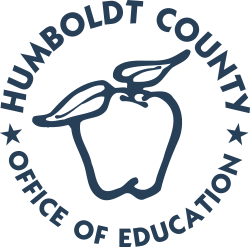
Humboldt County Office of Education – NASMC Team
At the Humboldt County Office of Education (HCOE), the development of the Native American Studies Model Curriculum (NASMC) is led by Learning Specialists, housed within the Learning Support Services Department. The NASMC Learning Specialist provide expert project management, curriculum development, and professional learning in collaboration with California Tribes, Native-led organizations, Cal Poly Humboldt, and other education and cultural partners statewide.
The Learning Specialists played a central role in building the NASMC by leading outreach and engagement with Tribal partners and Native educators, contracting with and supporting curriculum and resource writers, and forming writing teams that included educators, knowledge keepers, and cultural experts. They also took the lead in editing, refining, and aligning lessons to ensure they met California’s accessibility standards, including compliance with the Web Content Accessibility Guidelines (WCAG) 2.1 AA and Universal Design for Learning (UDL) principles, making content usable for all learners.
This role is distinguished by its deep commitment to relationship-building with Tribal Nations and Native communities, as well as its emphasis on culturally sustaining curriculum design aligned with California content standards. With extensive experience working alongside Native-serving organizations, educators, and Tribal partners, the Learning Specialists ensure that NASMC content is accurate, respectful, and reflective of California Indian perspectives.
For more information on HCOE’s process, see this article written by Dr. Cutcha Risling Baldy and Maggie Peters featured in the ACSA Leadership Magazine. The California Native American Studies Model Curriculum
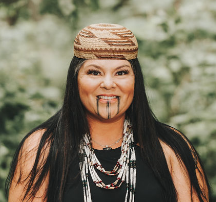
Margaret Lee Peters (Yurok/Karuk) is a traditional basket weaver, regalia maker, and is dedicated to preserving cultural practices by learning from Elders in her family and community. Maggie is the daughter of Chris Peters, President of the Seventh Generation Fund, and Suzanne Burcell, retired Educator and Community/ Economic Development Specialist, and follows in their footsteps of professional dedication to local Indigenous peoples. She served as an educator/administrator/coach for 16 years on the Hoopa Valley Reservation before service as a Learning Specialist for the Native American Studies Model Curriculum at Humboldt County Office of Education. Her educational philosophy is deeply rooted in culturally responsive teaching, trauma informed approaches, arts integration and social emotional learning. She offers educators and youth/educational organizations professional development through a foundation of growth mindset, self compassion, and culturally responsiveness to create safe learning environments where students can thrive, eventually fall in love with acquiring knowledge and as a result, always open to diverse perspectives and communal support. Maggie is a cultural preservationist (traditional basket weaver, regalia maker, and participates in ceremonies) and mother of three amazing children.
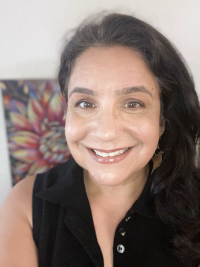
Rebecca Lowry, MSW (Delaware Tribe of Indians) resides in San Diego with her family. She is a poet, feather weaver, curriculum designer, educator and social worker. Her poetry is published in Lenapehoking, an Anthology (2021). She wove a turkey feather cape, “The Cape of a Matriarch,” which is exhibited at the Brooklyn Museum, as of September 2025. She is currently a Curriculum Specialist for the SDSU Research Foundation. As a NAS Learning Specialist for Humboldt County Office of Education, she led the initial listening sessions and supported the production of the Northern California team’s K-12 NAS model curriculum.
The NASMC project at HCOE was supported by a dedicated team of support staff and management professionals who played essential roles behind the scenes. From overseeing contract compliance and partner coordination to managing internal operations, communications, and logistics, this team ensured the smooth and timely development of curriculum resources and engagement efforts. Their collaboration allowed Learning Specialists to focus on relationship-building, lesson development, and statewide outreach. Together, the HCOE NASMC team remains committed to advancing community-led, culturally grounded education centering Native voices to strengthen learning across California schools and educational environments.
Colby Smart, Ed.D, Deputy Superintendent, Educational Services
Rosie Slentz, Ed.D, Director, Learning Support Services
Joanna Galicha, Graphics Specialist
Mia Gonzales, Office Coordinator
Argie Muñoz, Office Coordinator
Meet the HCOE Development Partners
Humboldt County Office of Education NASMC Development Partners
The lessons and resources in the Native American Studies Model Curriculum (NASMC) were created by a diverse group of writers who independently responded to a “Call for Curriculum Writers” outreach announcement, many of whom are members of California Native Nations and/or worked in partnership with Tribal communities. Writers included educators, cultural knowledge keepers, Tribal language experts, and Native scholars, who brought lived experience, local expertise, and cultural knowledge to the development process.
Many curriculum writers worked closely with Tribal Nations, Native language programs, and Native-serving organizations to ensure the content reflects place-based knowledge and community priorities. In many cases, educators partnered directly with cultural advisors or knowledge keepers to co-create and refine lessons. Each unit and lesson underwent a careful review process involving Tribal representatives, cultural experts, NASMC Guiding Leaders, and Learning Specialists, who worked together to support cultural integrity, accuracy, and alignment with educational standards.
At the heart of this work was each writer’s commitment to representing the authentic stories, histories, and lived experiences of Native peoples from and living in California. Their dedication and compassion for Native peoples helped ensure the NASMC is a respectful reflection of Native voices, values, and knowledge systems.
Meet the Tribal Partners
Tribal Nation Partnerships
We extend our deep gratitude to the California Tribal Nations who generously shared their time, knowledge, and cultural guidance throughout the development of the Native American Studies Model Curriculum (NASMC). Their contributions — through community meetings, lesson reviews, cultural content, and collaboration with educators — ensured that the NASMC reflects the integrity, diversity, and lived experiences of Native peoples in California. This work would not be possible without their leadership and commitment to education rooted in respect, relationship, and responsibility.
Lesson Partners:
Karuk Tribe
Miwok Band from Marin County (non-federally recognized)
Muwekma Ohlone (non-federally recognized)
Pechanga Band of Indians (Great Oak Press)
Washoe Tribe of California and Nevada
Winnemem Wintu (non-federally recognized)
Wintu Tribe of Northern California (non-federally recognized)
Wiyot Tribe
Yurok Tribe
Meet the HCOE Community Partners
Humboldt County Office of Education Community Partners
The development of the Native American Studies Model Curriculum (NASMC) was rooted in deep partnership with California Native communities, educators, and cultural experts. To ensure the resources are accurate, respectful, and reflective of California’s cultural and regional diversity, the Humboldt County Office of Education (HCOE) collaborated with Northern California Tribal Nations, the Native Educators and Scholars Committee, Native knowledge keepers, and co-leads at the San Diego County Office of Education (SDCOE).
HCOE led the development of over 290 digital lessons that include videos, art, oral histories, youth interviews, and professional learning resources. This work was made possible by the generosity and expertise of partners who hosted community meetings, licensed art and media content, created original content, and authored or reviewed lessons and training guides. Four original films were commissioned, and numerous pieces of existing Native-created media, art, and literature were respectfully incorporated into the curriculum under licensing agreements.
The traditional cultural knowledge found within these lessons — including Native languages, stories, artistic works, and community-based media — remains the intellectual and cultural property of the respective Tribal Nations, Native knowledge keepers, artists, producers, and authors. Each lesson clearly identifies the source and ownership of cultural content. Use of these materials is intended to support classroom learning as part of the NASMC and must be respected accordingly.
We are deeply grateful to the many individuals and organizations whose knowledge, labor, and vision made this work possible. Their commitment ensures that the NASMC is not only educational, but rooted in relationship, responsibility, and the continued affirmation of Native voices in California’s classrooms.
Native Educators and Scholars Committee
The Native Educators and Scholars Committee played a key role in shaping the Native American Studies Model Curriculum (NASMC). This group, made up of Native teachers, scholars, and cultural practitioners from across California, brought essential experience and insight to the development process. Committee members vetted curriculum resources, co-created lesson content, and advised on the design of templates, instructional strategies, and professional learning materials.
In addition to their curricular contributions, the committee supported community outreach and communications, helping ensure that all aspects of the NASMC remained grounded in Native priorities and perspectives. Their leadership was vital in making the curriculum both academically rigorous and culturally respectful, and their ongoing partnership reflects a deep commitment to community-informed education.
Caitlin Keliaa, PhD (Washoe, Paiute)
Cheryl Tuttle (Yurok)
Cindy Hogue (Wintu Tribe of Northern California)
Cutcha Risling Baldy, PhD (Hupa, Yurok, Karuk)
Desera Langley, PhD (Susanville Indian Rancheria)
Frank Tuttle (Yuki, Wailacki, Concow Maidu)
Jade Tyner (Yurok)
Kishan Lara-Cooper, PhD (Yurok, Hupa, Karuk)
Mark Minch-de Leon, PhD (Mountain Maidu, Pit River)
Melissa Leal, PhD (Esselen & Ohlone)
Melodie George-Moore (Hupa, Karuk)
Olivia Chilcote, PhD (Luiseño, San Luis Rey Band of Mission Indians)
Pyuwa Bommelyn (Tolowa, Karuk)
Lesson Partners and Contributors
Humboldt County Office of Education gratefully acknowledge the many artists, authors, filmmakers, cultural practitioners, organizations, and knowledge holders who contributed content to the Native American Studies Model Curriculum (NASMC). Through commissioned contracts or licensing agreements, media releases, and shared permissions, these partners allowed their original works including art, stories, films, audio recordings, and educational resources to be used in support of meaningful, culturally grounded learning. We also recognize that many additional resources included in the curriculum are drawn from Creative Commons or public domain sources, and we honor the value of those contributions as well.